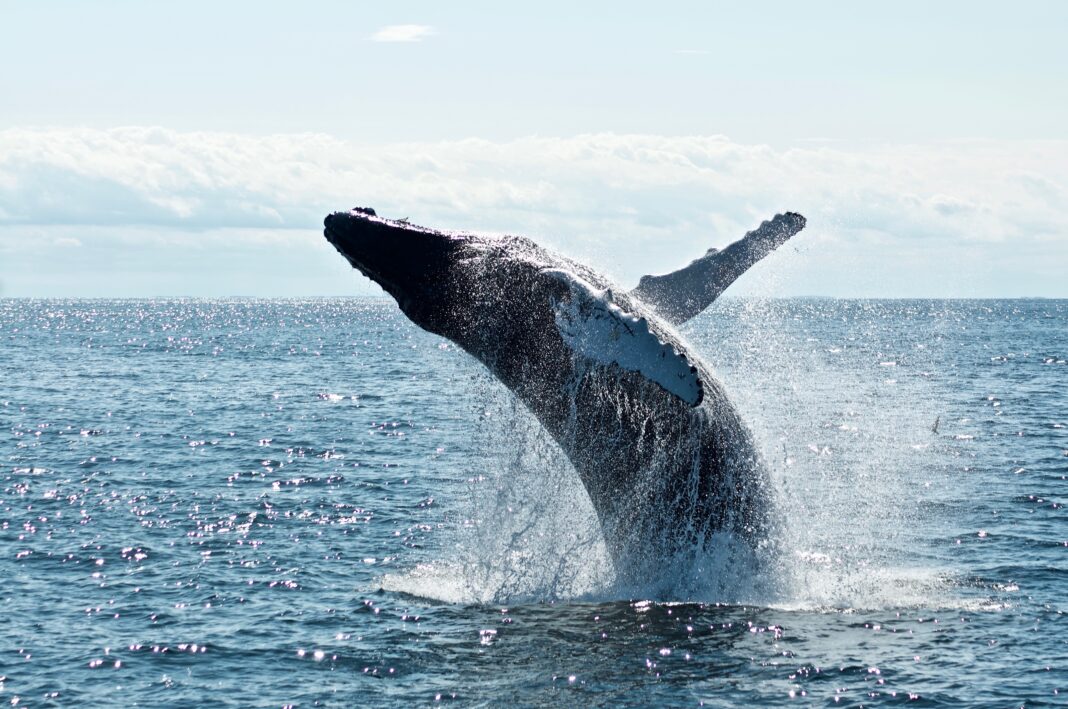SAN FRANCISCO—The Marine Mammal Center (TMMC) announced on Wednesday, March 31, that a gray whale washed ashore near the Golden Gate Bridge.
According to Giancarlo Rulli, a spokesperson for TMMC, the TMMC received calls to their 24-hour hotline around 7:30 a.m. that a whale was floating about a “football field’s length” away from the St. Francis Yacht Club. At 9 a.m. the carcass floated towards the coast, and part of it had washed up on the shore at Crissy Field in San Francisco, part of the recreational area for the Golden Gate Bridge.

TMMC subsequently coordinated with the U.S. Army Corps of Engineers to tow the whale from the Crissy Field shore to Angel Island State Park, where TMMC scientists and partners can safely perform a necropsy to determine how the animal died. The necropsy will help TMMC identify the sex, age, and classification of the whale. It will be conducted in hopes of discovering how the gray whale died.
The gray whale species has become an area of focus for west coast animal centers. The National Oceanic Atmospheric Organization declared an “unusual mortality event” because of the increased number of gray whales washing up on beaches.
“The species faces a lot of challenges,” said Rulli. “From Mexico to Alaska, we have seen elevated numbers of gray whale standings up and down the coast.”
Standings are occurrences when a whale carcass washes up on the shore.
According to Rulli and TMMC data, an average year contains 5-10 necropsies for all species. In 2019, there were 13 necropsies for just gray whales.
The California Academy of Sciences will help TMMC with their necropsies. Rulli emphasized that the public plays a large role in making sure the TMMC can respond quickly and potentially save any animals in harm.
The two most common species of whales in the Bay Area are gray whales and humpback whales, who both venture into the calm waters of the bay.
“The calm waters of the bay work as a sanctuary for the whales, as opposed to the rough waters of the open ocean,” Rulli said.
The TMMC asks people to report marine mammals in distress to the 24-hour hotline at 415-289-SEAL (7325).







